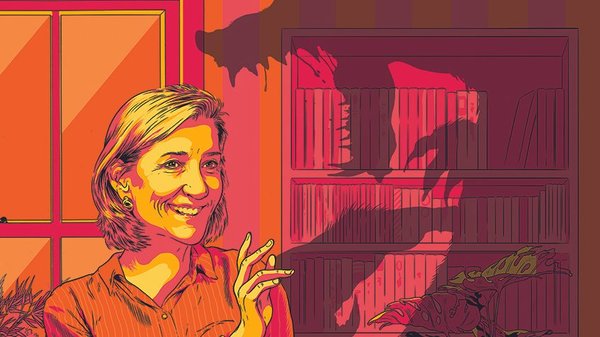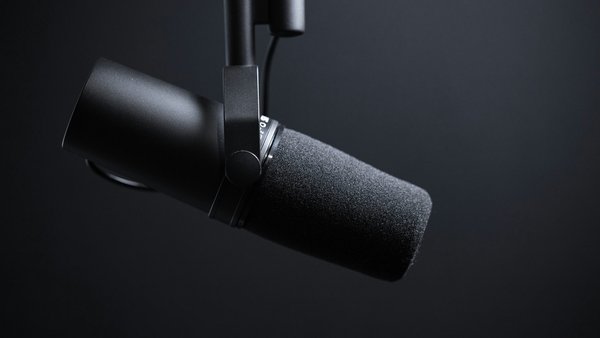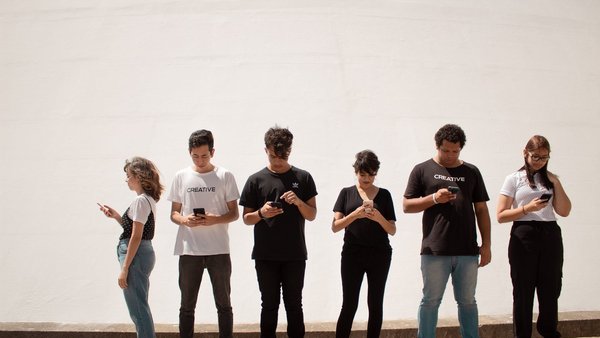An interview with the president of the inaugural Creative Strategy category at Cannes /
Tracey Follows, the president of the inaugural Creative Strategy jury on this year's Grand Prix winner, defining a category and how to set up for success in 2020

Volvo’s E.V.A. initiative, a project to make safety more inclusive, took home the Grand Prix in the newly minted Creative Strategy category at Cannes this year. We spoke to Tracey Follows, jury president and founder of strategic foresight consultancy Futuremade, to find out more about what it takes to impress the festival’s most demanding jury.
Creative Strategy is a new category at the Cannes Lions, why do you think its relevance is being recognised now?
I don't know if it's about [being] more relevant, but it's about giving it its just desserts [...] What we're trying to do is unlock the strategies that have been hidden away, which have driven so much amazing work that is awarded year in year out at Cannes. It's trying to give the planners a point of view and a voice, and trying to acknowledge and represent strategy as it should be.
Why has that become more important?
What's happened, particularly with the technology platforms and everything becoming much more data-driven, is that the role of the planners and the strategists in standing up for the human in all of this, has become more and more important.
And that's one of the things about EVA. It took a data insight, a hard fact insight, and it's exposed it and implemented it and executed it in a really human way.
I think in a more data-driven, algorithmic, technological, platformed world, creative strategy and creative strategists that help eke out the human benefits and articulate these in human ways, are going to be much more important.
How did you set the parameters and criteria for judging a diverse array of approaches?
In the light of how emergent and ever-evolving and ever-changing strategy is, it's quite hard to set out with a deliberate framework and criteria for judging creative strategy.
It's better to start judging it, discussing it, debating it, and somehow out of that, force some common criteria that everybody can agree on and feels like it will demarcate the good work from the absolutely brilliant work.
We started thinking about what creative strategy was. It is a brilliant thought that unlocks the potential of an idea, and that goes onto create business growth, or change perceptions – in a small way or a large way – or even change behaviour.
That’s quite broad: how did you start to narrow the field?
We found that we were trying to compare and contrast really different cases, and so really then you are falling back quite a lot on the case that has been made in the paper.
There was quite a bit of famous work, and we could intuit and probably articulate what we thought the creative strategy was sitting behind it. But did they make the case for that creative strategy, for that brilliant breakthrough, for that journey they'd been on, for that idea behind the idea? Not always.
So that was one of the criteria. Have they understood and articulated their own creative strategy?
Of all the categories, it feels appropriate that this is the one where the quality of the thinking that underpins everything needs to be brilliantly expressed. What advice would you give to people entering the category next year?
You've got to spend a lot of time thinking deeply about what you've done and why you've done it, and the journey you have been on. And then rather than writing a case and submitting it, get other people to read it and feed back and challenge it.
As the author of something, you think you've communicated something, but the reader might not agree with that. What we found in some of the cases was that we felt we could have written this paper brilliantly, but the case hadn't necessarily been made.
Spend a lot of time crafting that paper, and almost diary-ing the journey to understand what is it that [you] have really unlocked here, how and why, and what's it going to lead to as a result.

Any fundamental mistakes that people make with their entries?
The one thing I would say is please don't re-purpose a paper that has been used for entering an effectiveness award or a creative award because this is a strategy award. Of course, the creative element is half of it, it is really important, but unless you understand and can tell your strategy... well, if you can summarise it in one succinct sentence, you know you're onto something. If you can't, you've left people floundering going, 'What? Is it this, is it that?' That doesn't get through to the next round because you need to have clarity about what it is you've done and why.
Another juror mentioned that the winner you picked hadn't been awarded the Grand Prix because it was the most effective, so what were the qualities persuaded you to give top honours to Volvo EVA?
The reason we're not awarding the most effective is because there's a Creative Effectiveness award and we are awarding Creative Strategy, which is the inputs. Creative Effectiveness is the outputs.
Yes, we're going to take the outputs into consideration, because you can only judge a creative strategy by its implementation, but we're not overly concerned with the results to the detriment of everything else. The most important thing is what were the inputs that went into this?
In this case, there was a silent insight lying around in data that had been there for decades that nobody had an unearthed: how important safety is to women and how they are the major influencers in the purchase of cars, and yet in the real world how much more likely they were to die in a crash because all of the crash test dummies had only been male.
That insight really stops you in your tracks doesn’t it?
It was just such a shocking insight. It’s a great example of an industry out of touch with its own consumers [...] So it was a reconnection job in a sense.
There was the fact that this was all about safety and that's what Volvo is about. So, building on the brand equity in a more interesting, modern and refreshing way.
There was the addressing of big zeitgeist themes, like inclusivity and eradicating bias.
And then finally I really was passionate about the open-source nature of what they did because they could have quite easily kept that data, used it for themselves to ramp up their brand point on safety. But they didn't, they've shared it out.
For me, it's not really about the effects now: it's about the potential effects of this initiative that actually could scale across the globe.
If you'd like us to bring the best work, key trends and brightest ideas from Cannes Lions to your office for your team or as part of a client event, book our Cannes Deconstructed briefing. Based on behind-the-scenes access to jury presidents, press conferences and the teams behind the Grands Prix-winning work, Cannes Deconstructed delivers a week’s worth of Cannes in one, insight-packed hour. To find out more or book a Contagious Cannes Deconstructed briefing, click here.
Want more of the same? /
We don’t just write about best-in-class campaigns, interviews and trends. Our Members also receive access to briefings, online training, webinars, live events and much more.








